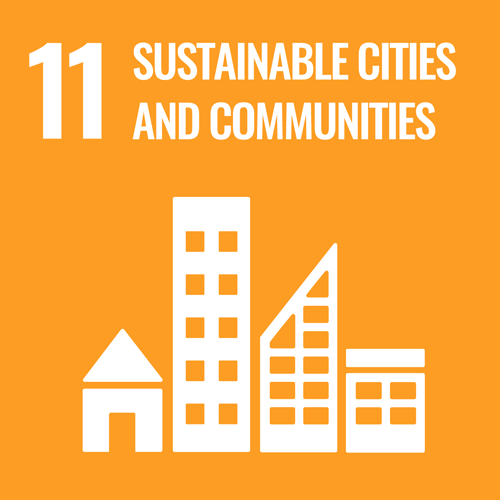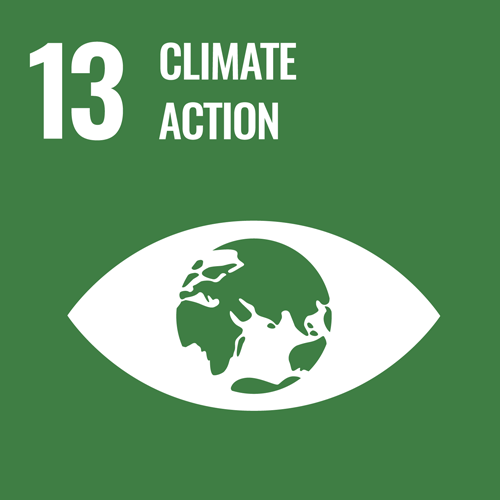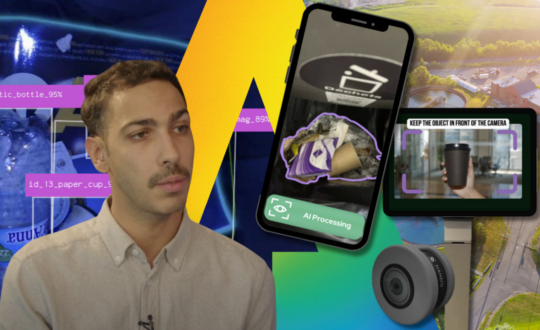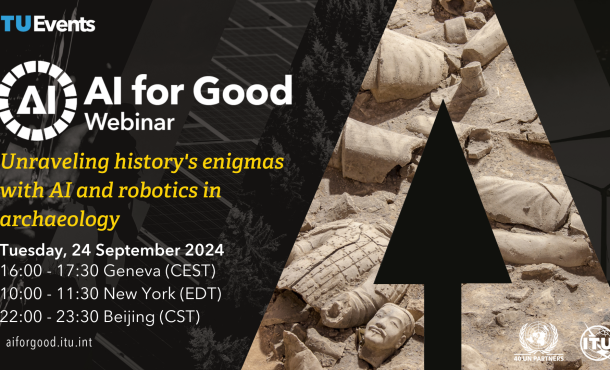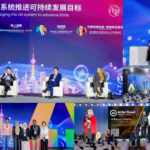Crowdsourcing AI Solutions for Climate Change: AI-Startup Winners at COP28
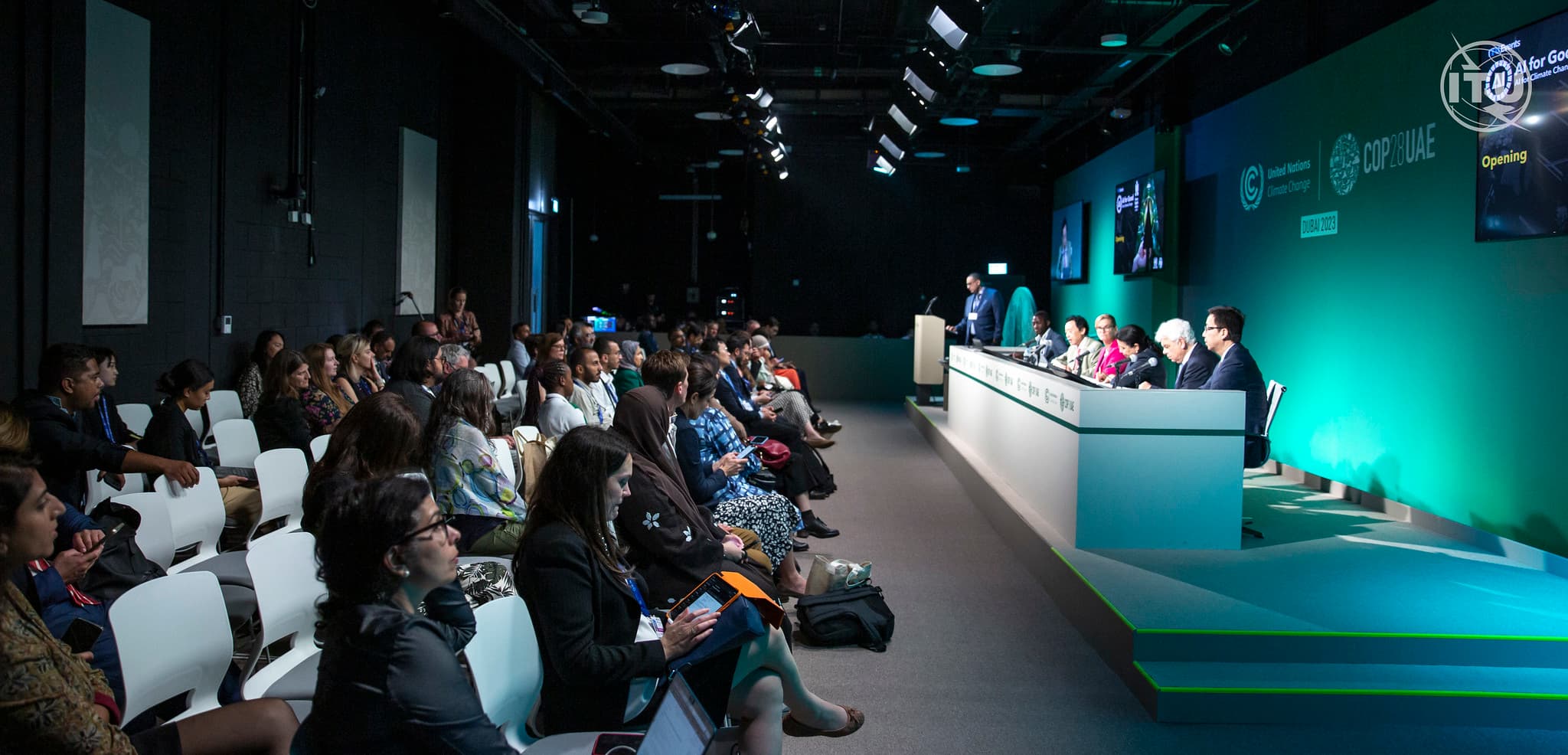
By Haore Hadi, Junior Communications Officer
The 28th United Nations Climate Change Conference (COP28), held in Dubai, United Arab Emirates, reinforced the intersection of Artificial Intelligence (AI) solutions and climate action. The AI for Good Innovation Factory for Climate Change organized by the International Telecommunication Union (ITU) in collaboration with International Atomic Energy Agency (IAEA), United Nations Food and Agriculture Organization (FAO) and United Nations Educational, Scientific and Cultural Organization (UNESCO) provided a special session titled “Crowdsourcing AI Solutions for Climate Change” where spotlight was on the winning of five outstanding AI startups as they were granted the opportunity to present their cutting-edge AI solutions to the audience.
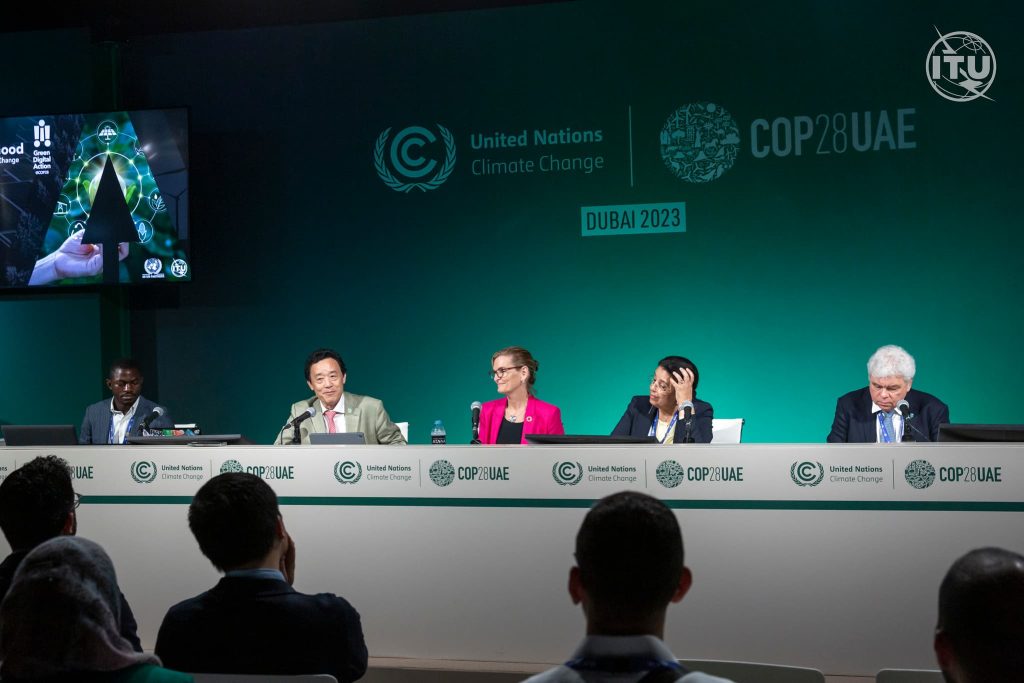
Delivering the keynote address at the event, ITU’s Secretary-General Doreen Bogdan-Martin highlighted the instrumental role of the AI for Good Global Platform on unleashing the full potential of AI in areas like Energy Efficiency, Water Resource Management and Climate Resilient Agriculture.
The winners presented a range of innovative AI solutions including:
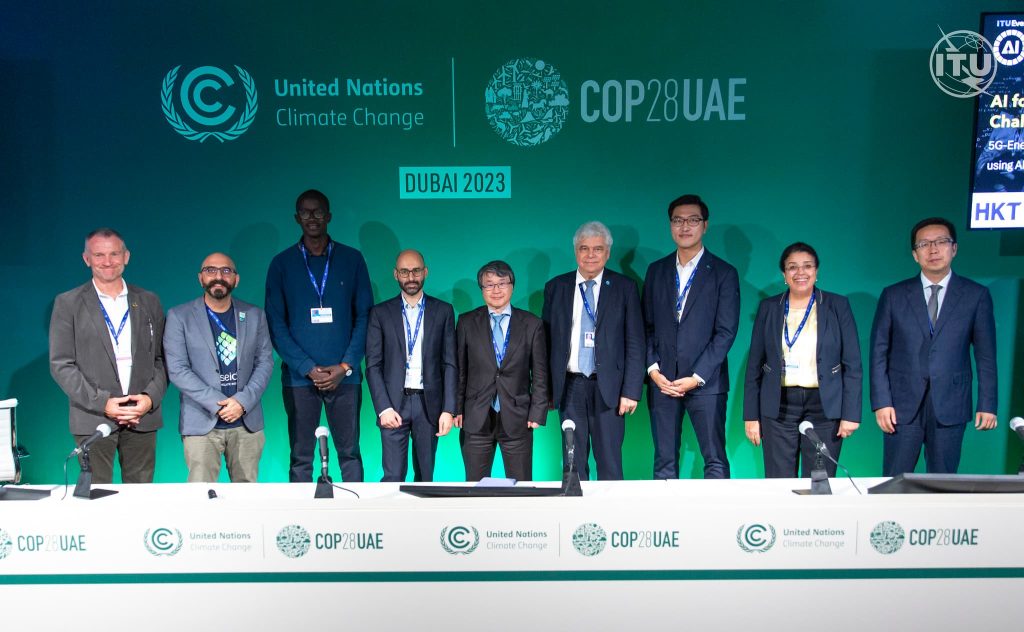
Finapp Company (supported by the Joint FAO/IAEA Centre):
The company’s ambitious vision for preserving life by saving water is being materialized through the use of Cosmic Ray to measure water. Finapp has innovatively combined the Cosmic Ray Neutron Sensing Technology (CNS) with a Hardware system capable to read the Cosmic Neutrons, the Hardware is engineered, patented and ready for large scale production making Finapp the only company in the world that can measure this type of data in real time.
SI Analytics (Supported by UNESCO):
The company presented its AI solution in bridging the climate information gap using satellite observations and AI creating an ‘AI-Based Climate Information and Early Warning System’.
Bloom Africa (Partnership with FAO):
The Bloom Africa startup is dedicated to improving the accessibility and ease of use of Earth Map, with the joint goal of advancing solutions for more accessible, efficient, and secure digital innovations in the fight against climate change.
Poseidon AI (Supported by IAEA):
Leveraging the power of IOT, AI and ML, Poseidon AI is helping farmers, indigenous and vulnerable communities not only to face climate change impacts but also in their sustainable development contributing to a total of nine Sustainable Development Goals.
Tolbi (Supported by the Joint FAO/IAEA Centre):
The company has introduced a cloud-based AI decision making platform for food companies to drive sustainable supply chain and climate smart agriculture practices with farmers.
The event was also followed by a ML5G Challenge on AI/ML for 5G Energy Consumption organized by ITU and Huawei. Over 700 teams participated in the Energy Consumption Modelling Challenge and participants designed a Machine Learning Model that can be deployed in a 5G network to reduce energy consumption of base station. This solution can reduce energy for any base station type and configuration including new ones.
The winners of this challenge included the following Teams:
- First Place Prize: Team Farzi Data_Scientists (Krishna Priya and Rajat Ranjan)
- Runner up Second Place Prize: Team CAKE (Tingwei Chen Tingwei Chen Tingwei Chen, Yantao Wang, Hanzhi Chen, Zijian Zhao, Xinhao Li, and Guangxu Zhu)
- Third Place Prize: Rafael_zimmermann
- Fourth Place Prize: Team Heyyou (Hamdi Barkous)
- Fifth Place Prize: Team Newbee (Ning Jia)
Special prizes were also given including the following:
- Best Student Solution Prize: JuliusFx (Julius Mwangi)
- Best Presentation Prize: Montex (Aleksander Samek, Witold Pietroń, and Krzysztof Pawłowski)
- Most Creative Solution: Mapplelife (Licheng Zheng)


